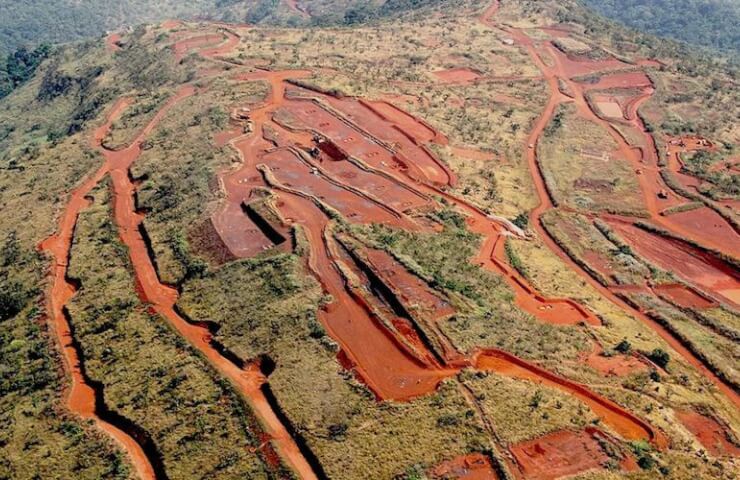Rio Tinto Guinea has agreed with China's Baowu to develop infrastructure for the massive Simandou iron ore mine, the next step in a project it has been involved with since 1997.
Simandu is located in a remote corner Guinea, and the problem of transporting high-quality iron ore from the mine to the market for a long time hampered its development. The Guinean government is demanding the construction of a 600-kilometer railway to the coast.
A Rio spokesman said they and Baowu Resources Co Ltd have signed a condition sheet as the next step to reach a shareholder agreement, cost estimate and regulatory approval required to move forward.
China's largest steelmaker, China Baowu Steel Group Co Ltd, said its subsidiary has signed terms for Simandou infrastructure.
China Baowu said it would speed up negotiations under the agreement of the shareholders, will lead the formation of the Bao consortium and provide project financing, and accelerate the development of the project.
The Bao consortium plans to invest in the WCS joint venture to own 49% of WCS InfraCo and WCS MineCo. He plans to increase his stake in WCS MineCo to 51% once the mine is operational.
"Baowu's entry into the project is a positive signal of the importance of Simandou and the long-term attractiveness of its high-quality, low-contaminant iron ore," said Gerard Reinberger, Rio Tinto's managing director for Simandou.
Simandou is the world's largest undeveloped iron ore project, a key component in steel production.
WCS, a consortium of Singaporean firm Winning International Group (45%), the Chinese subsidiary of Hongqiao Weiqiao Aluminum (35%) and the Guinean company United Mining Suppliers International (20%), won the rights to blocks 1 and 2 Simandou in November 2019.
Rio Tinto has held the rights to Simandou blocks 3 and 4 since 1997 through Simfer SA, which is owned by the Guinean government (15%) and Simfer Jersey Limited (85%), itself a joint venture between Rio (53%) and Chalco. Iron Ore Holdings (CIOH) (47%).
75% CIOH is owned by China Aluminum Corporation (Chinalco) and 20% by Baowu, with China Rail Construction Corporation and China Harbor Engineering Company each owning 2.5 %.




